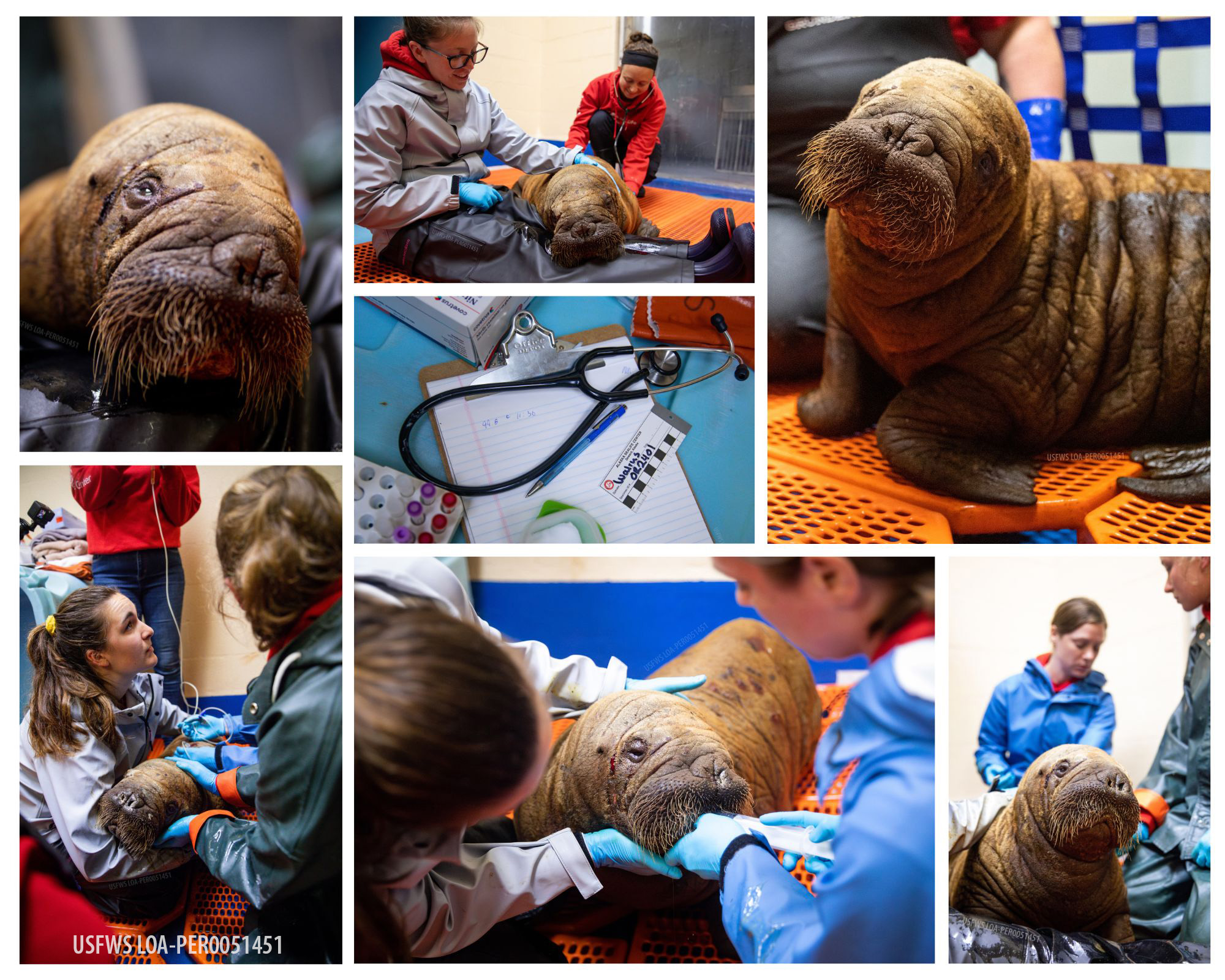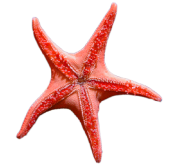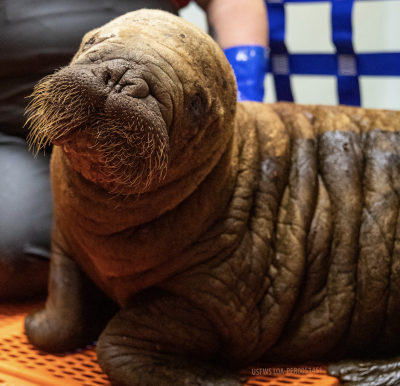The ASLC Admits Rare Patient — an Orphaned Pacific Walrus Calf from Utqiagvik, AK July 25, 2024
The Alaska SeaLife Center (ASLC) is caring for a female Pacific walrus calf that arrived from Utqiagvik on July 22, 2024. Walruses are rare patients for the Wildlife Response Department, with only eleven total and just one other female since the ASLC opened in 1998. This patient follows another walrus admitted just last year, which gained national attention but sadly passed away due to irreversible health issues.
The ASLC’s newest patient was first observed alone on the beaches of Utqiagvik. Reports from subsistence hunters noted that a walrus herd had recently left the area, suggesting the calf had been left on its own. After receiving approval from the United States Fish and Wildlife Service (USFWS), ASLC staff mobilized to assist in transport and prepared to receive the patient.
Transporting the calf from Utqiagvik, Alaska’s northernmost city, was no simple task. Luckily, ASLC partners were able to provide overnight care and fluids, ensuring the calf remained stable on its 24-hour journey. The transport team arrived in Anchorage the night of July 22, and the nearly 165-pound calf — estimated to be only a couple of weeks old or less — was brought under the care of the ASLC’s experienced Wildlife Response and Veterinary teams.
The atmosphere was charged with determination and cautious optimism as the team conducted their initial admit exam. They noted that the calf was malnourished and dehydrated, but alert. As the team wrapped up administering emergency fluids and stabilizing treatments around 1 a.m. on July 23, they prepared for the demanding days ahead.
“We want to give [the calf] time to rest, but that doesn’t mean there is any time for the staff to rest. We will have at least two people on every shift either staying with the walrus calf or prepping food, cleaning the environment, and taking care of our other rehab patients. There will be lots of weird sleeping hours ahead, but that's ok. We do it for the animals. We want to give back and set them up for success. This is all part of the job we love,” said ASLC Veterinary Technician Jessica Davis.
The care regimen for Pacific walruses is more demanding and hands-on than for many other marine mammals. Because calves are highly social and seek comfort through physical contact with their mothers, staff act as surrogates, sitting with them around the clock. This also means that the calf will habituate to human care, and will not be a candidate for release back into the wild.
"Walruses are so reliant on their moms for the first two years of life, they're likely not going to survive without her. This calf would not have survived much longer without her mom. She now has a second chance at life in human care, and she'll help bring awareness to her species while receiving incredible care,” explained Wildlife Response Animal Care Specialist Halley Werner.
Though the walrus calf cannot currently be viewed publicly, she may be relocated to an area with limited public viewing as her condition improves. Upon such a development, additional announcements will be shared. Until then, regular updates can be found on the ASLC’s Facebook and Instagram pages.
The Alaska SeaLife Center’s Wildlife Response Program can only provide care for stranded and injured marine animals with help from corporate sponsors and individual donors. The Center acknowledges the ongoing generous support of the Wildlife Response Program from supporters like ConocoPhillips Alaska, Marathon Petroleum Corporation, PetZoo, Partners 4 Wildlife, Matson, GCI, and a number of individual donors, funds, and foundations such as Stanley J Williams Fund, Mesara Family Foundation, and the NC Giving Fund.
Those interested in contributing to the care of these patients can visit www.alaskasealife.org/donate.
Call first! Before approaching an injured or stranded marine animal in Alaska, call the 24-hour Stranded Marine Animal Hotline at 1-888-774-SEAL(7325).




